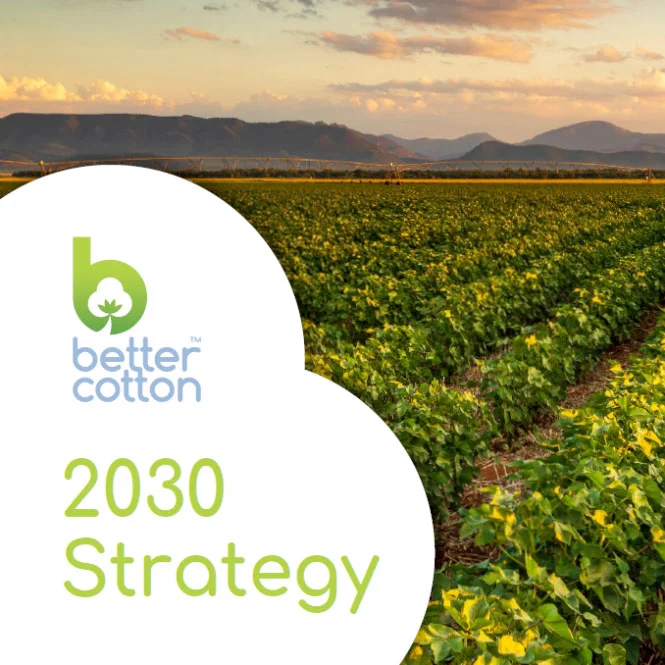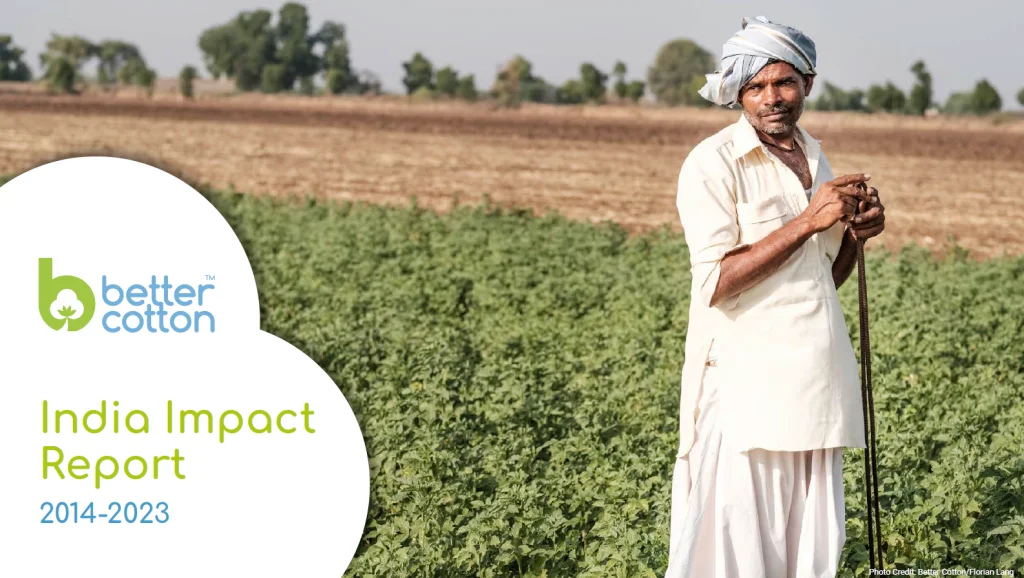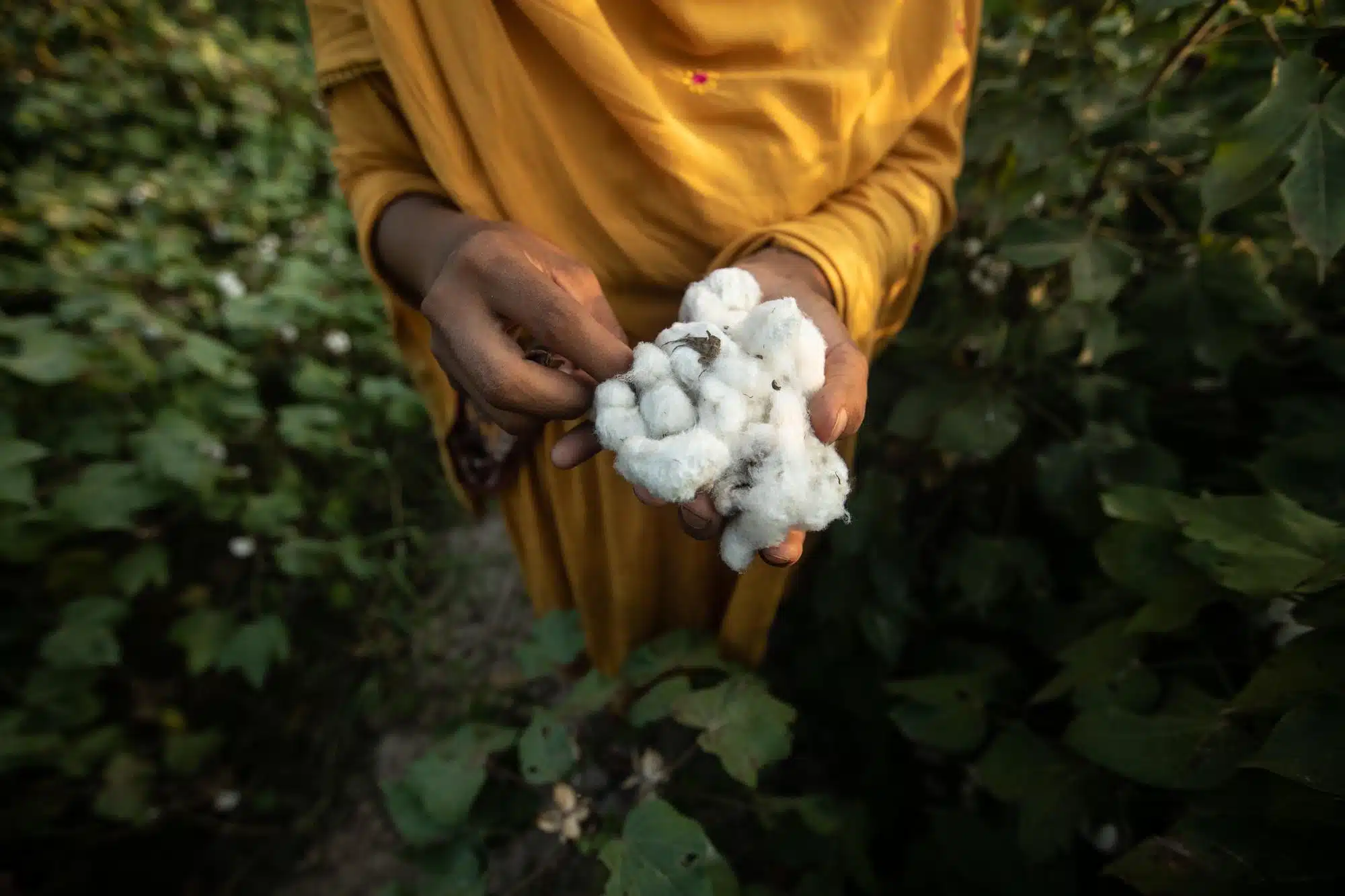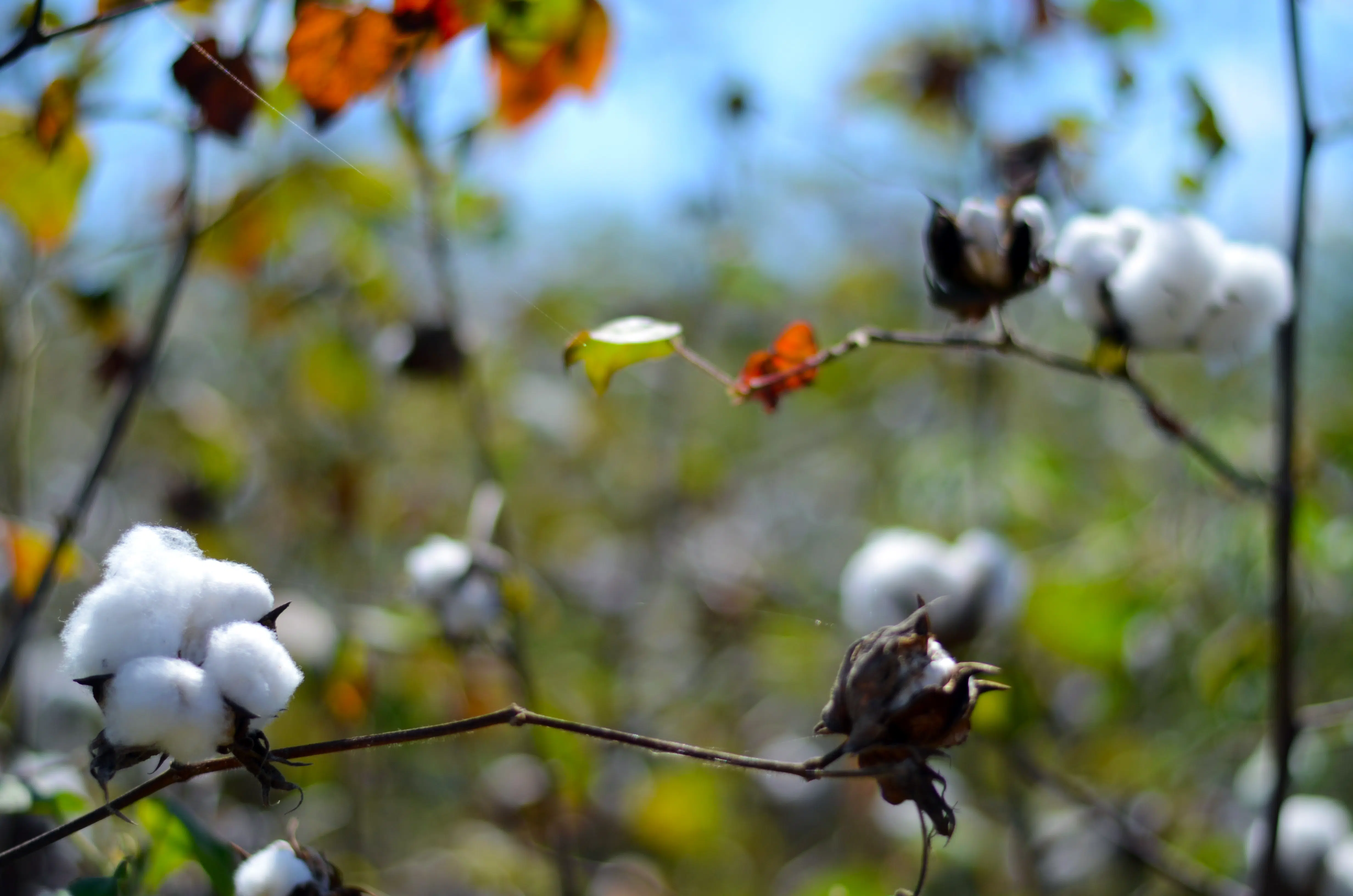- Who we are
- What we do
In just over 10 years we have become the world’s largest cotton sustainability programme. Our mission: to help cotton communities survive and thrive, while protecting and restoring the environment.
- Where we grow
Better Cotton is grown in 22 countries around the world and accounts for 22% of global cotton production. In the 2022-23 cotton season, 2.13 million licensed Better Cotton Farmers grew 5.47 million tonnes of Better Cotton.
- Our impact
- Membership
Today Better Cotton has more than 2,700 members, reflecting the breadth and diversity of the industry. Members of a global community that understands the mutual benefits of sustainable cotton farming. The moment you join, you become part of this too.
- Associate Membership
- Civil Society Membership
- Producer Organisation Membership
- Retailer and Brand Membership
- Supplier and Manufacturer Membership
- Find Members
- Member Monitoring
- Better Cotton Platform
- myBetterCotton
- Resources – Better Cotton Conference 2022
- Complaints
- Whistleblowing
- Safeguarding
- Get Involved in the Better Cotton Programme
- Thank you for contacting us
- Better Cotton’s Data Privacy Policy
- Log in
- Members’ Area
- Request for Proposals
- Better Cotton Cookie Policy
- Web Reference
- Measuring Cotton Consumption
- How to Implement the Chain of Custody Standard
- Resources – Better Cotton Conference 2023
- Certification Bodies Old
- Latest
- Sourcing
- Latest
The founding premise of Better Cotton is that a healthy sustainable future for cotton and the people that farm it is in the interests of everyone connected with it.
Let us help you find what you’re looking for
Results for {phrase} ({results_count} of {results_count_total})Displaying {results_count} results of {results_count_total}
Without farmers, there would be no Better Cotton. Farmers and farm workers are fundamental to Better Cotton’s work, and in the more than ten years since Better Cotton began, our programme has reached millions of farmers, workers and farming communities around the world.
However, as we play our part in improving the sustainability of agriculture, we must continuously evaluate whether our approach is truly designed from the perspective of farmers. We must consider every aspect of our systems, services and tools to make sure they continue to be designed primarily for the benefit of farming communities.
That’s why, in 2021, we invested time and resources into better understanding what farmers need and want, whether Better Cotton is delivering on this, and how we can further improve our offering for farmers and their communities.
Firstly, we launched our 2030 Strategy. This will drive how we approach our strategic aims, including our ambition to enhance the wellbeing and economic development of cotton farmers. Our capacity building will become more farmer-centric, better adapted to farmers’ expressed needs and designed to equip them to continuously improve their farming practices. Socially and economically, we will strive to improve the lives and livelihoods of cotton farmers, farm workers and their communities.
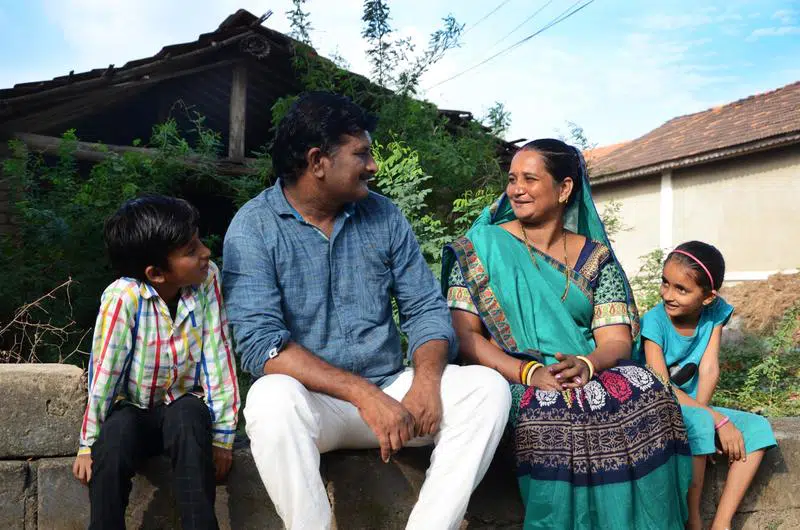
In 2021, we also conducted ‘farmer-centricity’ research among 100 farmers in Gujurat and Telangana, India, seeking to understand everything from farmers’ daily challenges and needs to their valued information sources, and best practices for learning and knowledge-sharing. We wanted to get a better understanding of what a Better Cotton Farmer’s life is really like – how confident they feel in addressing farming challenges, and how well Better Cotton enables them to do this.
For example, we found that most of those surveyed are dependent on cotton farming as their primary source of income, spending an average of 52 hours farming every week.
Cultivating crops is becoming harder and a third may farm less in the future. In particular, climate change, water scarcity, volatile prices and costly inputs are all common challenges.
It is also clear that in-person capacity building is vital, particularly to reach female and marginalised farmers, and that demonstration plots and field visits are crucial for supporting farmers to implement new practices – these will continue to be priority areas for our on-the-ground teams.
Additionally, we surveyed nearly 200 Field Facilitators and Producer Unit Managers in three countries – Turkey, Pakistan and Mozambique. We wanted to understand their experience of working with farmers, their motivation, how they spend their time, how they are supported by Programme Partners, and how this could be improved.
We can see that our knowledgeable and motivated Field Facilitators are making a great difference on the ground, forging lasting and valuable connections to the farming communities where they work. However, they still come across some resistance to change from farmers, and they spend a relatively significant amount of time travelling and collecting data. Low salaries present challenges in some regions, and women Field Facilitators can experience additional challenges. These are all areas that we are tackling as we move forward.
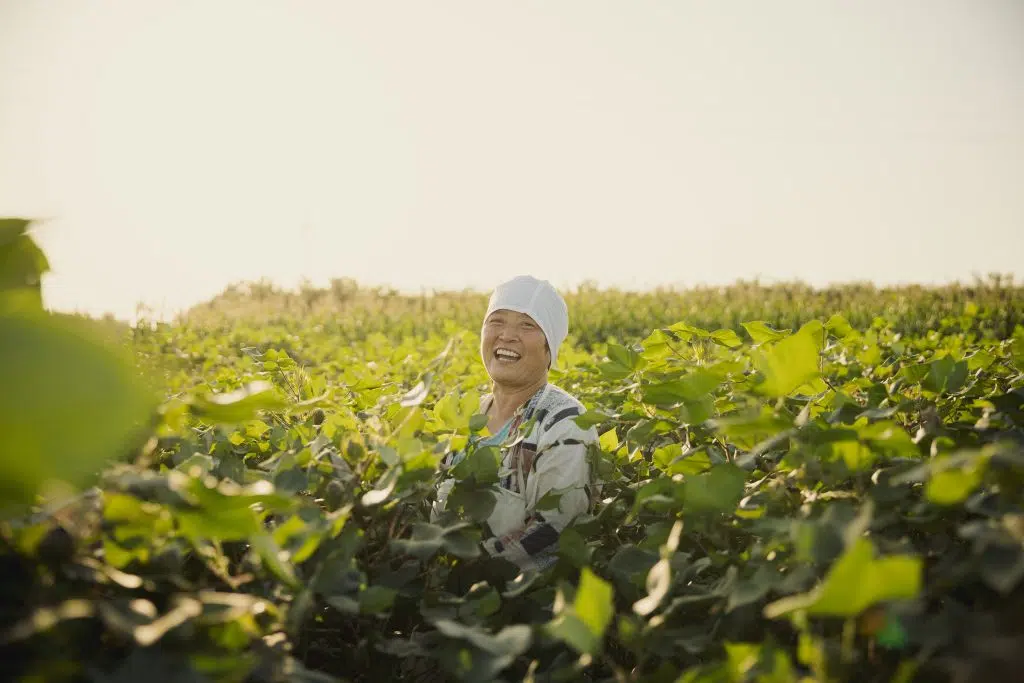
All of this work will help to inform the ongoing revision of the Better Cotton Principles & Criteria and the finalisation of our remaining 2030 targets. Launched in October 2021, the revision of the Principles & Criteria will help to ensure that our Standard continues to reflect best practices, leverages the latest research, and supports our ambitions to drive field-level change at the scale we need to achieve our strategy.
We know we cannot tackle all of these challenges alone, and collaboration within the sector is vital to driving change. To help cotton farmers earn a decent living, for example, we are also engaging in the Living Income Community of Practice. Through this alliance, we are collaborating with multiple organisations to learn more about the living income gap in cotton and develop our approach to monitoring and analysing this information, so that we can improve how we support farmers’ livelihoods. This kind of cross-sectoral collaboration will feature increasingly in our work.
We will strive to improve the lives and livelihoods of cotton farmers, farm workers and their communities.
Through our research and data collection, we see that Better Cotton training is working. We have already licensed over 2.2 million farmers including small, medium and large farms in more than 20 countries, and a fifth of global cotton is now grown and sold as Better Cotton.
Building on our existing efforts to help farmers continuously improve their farming practices, we will ensure that our capacity building becomes ever more focused on and tailored to farmers’ expressed needs. We will strive to offer the best support possible to farmers on their sustainability journeys, and improve the lives and livelihoods of everyone involved in farming Better Cotton – farmers, farm workers and their communities.
2021 Annual Report
Access the report to read the original farmer centricity artcile and learn more about the progress we are making in key priority areas.
